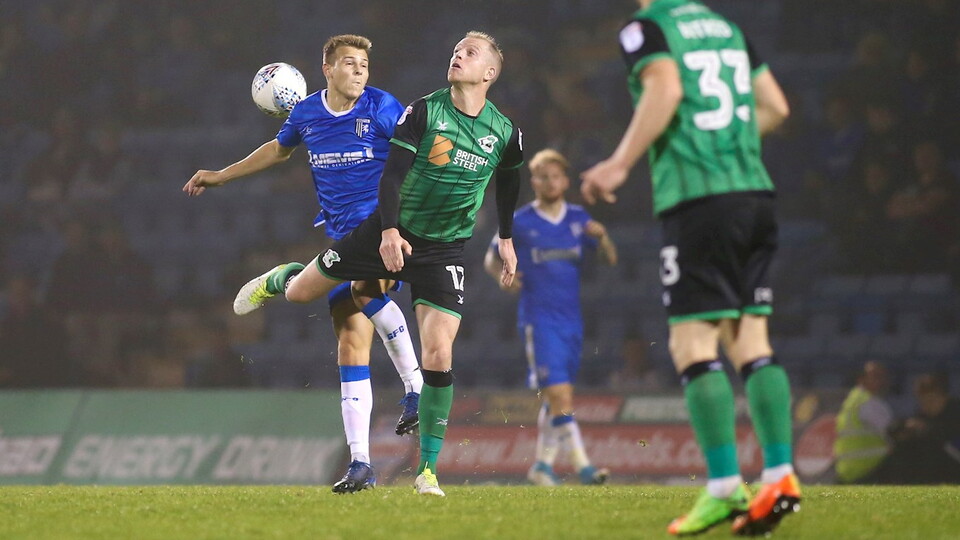Gills legend hails "special side" following 20-year Wigan anniversary.
Andy Hessenthaler has said lifting the second division play-off final winners’ trophy after beating Wigan at Wembley in 2000 has to go down as his best moment during his footballing career.
The midfielder admitted beating Wigan had helped to overcome the heartache suffered the year before, when Gills were beaten by Manchester City at the same venue on penalties.
Peter Taylor’s men were 2-1 down in extra-time against Wigan, but late goals from subs Steve Butler and Andy Thomson ensured the Gills won promotion to the second tier.
Speaking to the club website, the former Captain said: “I never thought I would do it [play at Wembley] because I was getting old. I didn’t think I would get there once, let alone twice at 34 or 35. It was always my dream to play at the home of Football; Wembley has been changed but the old one is the best with the twin towers, it has to be. I haven’t played at the new one, but would like to manage a team there.
“The old one is the best one and to walk those stairs is incredible; having gone through what we did I don’t know how we found the energy. But, what a feeling! You walk up the stairs to celebrate with a bunch of players who you have pretty much lived with for two years. We were part of each other’s lives and to celebrate with them was quite emotional and they all deserved it together.
“It was an emotional time and even to this day thinking about it puts a lump in your throat because the players were so passionate about each other and they would go to war for one another. I miss them and miss working with them.
“It has to be the best moment of my career. I have had some real highs, to go pro late with Watford and play in some big games and play at some big stadiums such as Leeds when they won the title against Gordon Strachan, Eric Cantona and the late Gary Speed. Wembley 2000 has to be the best moment of my Footballing life, we thoroughly deserved it after the year before and it’s something I will never forget, and keep watching.”
Hessenthaler was part of the team that had lost the 1999 play-off final to Manchester City, having been 2-0 up heading into stoppage time, and the former midfielder was determined to put things right against Wigan. He added: “I did get it out of my system, but it did take a while!
“My family flew out to America the next day for a couple of weeks and the flight going out was tough, but it was made tougher because when we got out there myself and Jake [Andy’s son] went to a bar and who did we bump into? A load of Man Utd fans! They recognised me and I couldn’t get away from it.
“They were great – they were gutted we didn’t win but even at the Airport going out I saw some City fans. It was always going to take a while because it was heart-breaking; we were so close to causing a major upset in the game. For me, it would have been a major upset. Gillingham to beat Man City in a play-off Final at Wembley? God knows what the odds were, but it would have been a huge shock due to the size of the clubs, there was no comparison but on the day we showed we were more than capable. For me we deserved to win but we didn’t have that bit of luck with the penalties, but that’s a lottery.
“In Football, depending on your mentality, if you believe in yourself and your group, which we had the year after, we were so tight and they were the best group I have ever played with, I always felt we could bounce back.
“People do say that, over the years, the team that loses at Wembley struggles the next year. We put the wrong right the year after and that’s credit to the players, the manager, and Tony to be fair. Peter put his own stamp on things and we had another fantastic season.
“Peter had a tough job on his hands following the year we had; the pressure was on to deliver. Could we emulate that, and go one step further?
“He was an experienced manager and had managed some good clubs, and had success, so he knew what to do.
“For me, the players were good to manage. A good group. The families were close, everyone knew each other, and we socialised together. You don’t see that now. Individually they might, but not as a group like we did, and that’s what made it a special group.”
